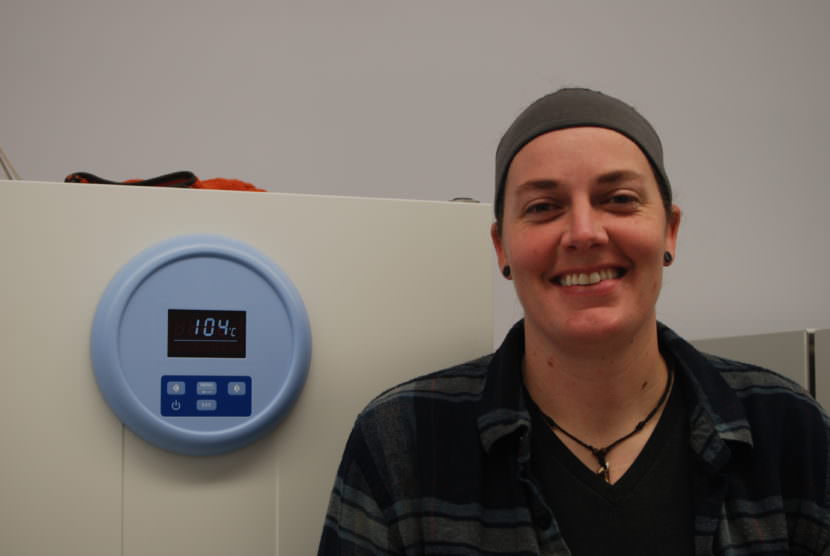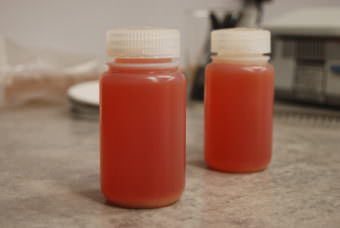
The fishing industry in Unalaska is dominated by men. But behind the scenes, at the local branch of a public health and safety company, there’s a woman running the show.
Nicole Beier works for NSF International, a company responsible for quality testing fish at America’s top fishing port. And now she’s tasked with expanding their capacity.
Beier always knew she wanted to work in science, but never imagined she’d end up in Unalaska.
“I was in a meeting last year in Ann Arbor and the microbiology lab was short people willing to come out here and I volunteered,” Beier said. “Because why not take a free trip to Alaska for 3 months? It would be cool.”
Beier’s employer makes sure products that food and water touch are safe for human consumption.
At headquarters in Ann Arbor, Michigan, Beier spent her days testing things like cutting boards, faucets and coffee makers. In Unalaska, almost everything she tests relates in some way to fish.
These days, Beier is permanently heading up the microbiology, fish inspection and new chemistry lab — which was created to expand NSF’s wastewater testing. This helps guarantee wastewater meets certain environmental standards before it’s released into the ocean.
“Logistically it is really hard to get samples out of here,” Beier said. “There’s not a lot of people here with a rigid science background so we’re pretty much the only lab that does certified through the state microbiology and chemistry testing.”
While there are other labs in Anchorage, Seattle and on the East Coast, Beier says many of those labs specialize in a test or two. But here in Unalaska, NSF is a one-stop shop; they do pretty much every test the fishing industry could need.
Today Beier’s testing a fish oil sample from a processing boat.

“Once you measure out your 10 grams, you just close this and then turn your heater on,” Beier said.
The machine bakes the orange liquid till it’s gone and measures how much water was in it. Less water means higher quality fish oil.
“This fish oil will actually go out to another lab to get more detailed tests done and depending on how those tests go out, they’ll decide it if gets refined for fish oil pills or if it’s just going to go for feed,” Beier said.
This five-person branch is the smallest of NSF’s labs. They test drinking water, salt water, and wastewater for the city of Unalaska, boats and processing plants in the area. Plus, they do fish inspections.
Having an extensive lab in Unalaska is important to the fishing industry. It helps them comply with testing requirements from the State of Alaska and the Environmental Protection Agency and gives them time to make adjustments if there’s a problem with their fish.
The fishing industry doesn’t have a lot of women and Beier says it’s a similar story in science.
“I think over the years most women have been the workhorses in the labs and the men get the bigger roles,” Beier said. “But I think it’s slowly moving towards more women proving that they know their science and they can run a whole facility by themselves.”
Living in Unalaska where there are so many men, Beier is hyper aware of her role as a woman in science and the power she has to share her love of the field with kids. She often makes that point with her team of junior high basketball players.
“I always try to talk up science to tell them that it’s okay,” Beier said. “It’s exciting! It’s not difficult and not to just see it as a negative thing.”
She’s hoping to invite students to her lab to see that science up close.
